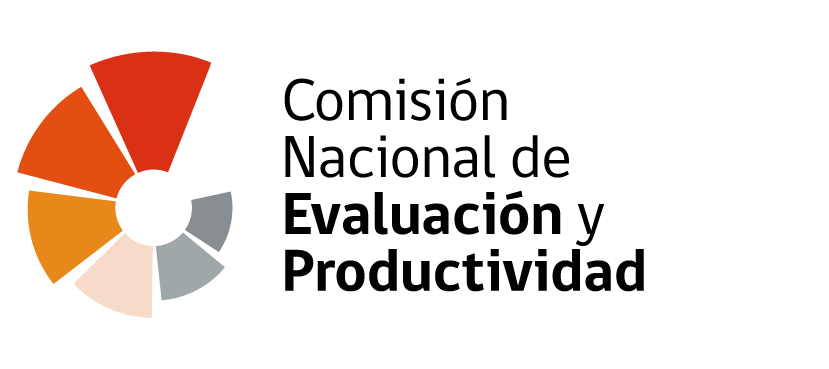
12 Dec Concession terms in Chile are the longest among OECD countries: The National Commission for Evaluation and Productivity recommends changing Chile’s spectrum concession model for more efficiency.
The spectrum allocation model in Chile and its peculiarities, including assignment validity periods, authorization for extensions and revocations, usage efficiency, and reorganization, among other aspects, is the subject of research and analysis by the National Commission for Evaluation and Productivity (CNEP), and it is now publicly available.
The CNEP study establishes Chile as an exception to the rule regarding the radio spectrum concessions granting mechanism. Chile and Japan are the only OECD countries that still employ the “command and control” model, which, according to the evidence, is lower in efficiency and competitiveness.
Furthermore, the concession terms in Chile extend to 30 years, the longest among OECD countries and nearly double the average, delaying the spectrum allocation to new operators, reducing efficiency, and discouraging technological progress.
The report finds that Chile still retains indefinite concessions, which, according to the evidence, distort competition. Moreover, estimates suggest that were the spectrum to be auctioned through a market model (with competitive prices and concessions allocated to the highest bidder), nearly USD 70 million in revenues would be yielded. CNEP proposes modifying the concession validity period and a SUBTEL assertion regarding the validity of indefinite concessions and compensation mechanisms.
The General Telecommunications Law (LGT) does not explicitly detail the elements that should be included in the spectrum concession renewal application or the criteria the regulator must consider when deciding. Neither does it specify that the inefficient usage of the resource is grounds for expiration.
The analysis of the spectrum in Chile, as detailed below, and the topics related to coverage, access, and Internet usage in the country, disclosed previously, are part of the “Productivity in the Telecommunications Sector” study.
Tuesday, December 12, 2023. The radio spectrum is the medium through which wireless communications travel. It is an essential element for the industry.
Specifically, the spectrum is a limited natural resource for public use, consisting of a range of radio frequencies that allow the transmission of communication signals. The authority assigns specific portions of the spectrum to avoid interference and ensure efficient operation.
Hence, the allocation models determine how to distribute, assign, order, and regulate this resource. Every country has a particular allocation model, which is vital for developing the telecommunications sector and social well-being.
Consensus: Chile must change the model it uses to grant spectrum concessions.
The evidence shows that two models are used worldwide to allocate spectrum usage: command and control and market-oriented. In the former, the State assigns spectrum usage rights according to the weighting of variables of interest (technical characteristics, deployment speed, coverage area, technology, among others); instead, a competitive pricing mechanism, where interested operators make economic offers through “auctions,” awarding the resource to the highest bidder defines the latter model.
Currently, among OECD countries, only Japan and Chile continue to use a subtype of the command and control model.
In 2021, following a thorough OECD review of the sector in Chile, it recommended the establishment of the auction model for allocating spectrum usage concessions in Chile.
CNEP recommends SUBTEL draft legislation establishing auctions to allocate radio spectrum concessions.
How can Chile’s spectrum concession system be characterized? Is it efficient, lengthy, straightforward, or complex to renew, and does it provide legal certainty for investment?
Concession validity, ease of granting extensions, types of renewals, and reasons for contract revocation, among other aspects, are characteristics that each country defines for its spectrum concession system through specific regulatory frameworks.
A vital aspect of these authorizations is their validity period. In practice, to incentivize investment, the concession duration should be long enough for operators to obtain a margin. While evidence shows that investment is higher when concession validity is longer, it also indicates that, at the same time, its usage productivity decreases.
Chile has the most extended concessions periods among OECD countries, reaching up to 30 years. This period, which is nearly double the average and contrasts with the 15-year useful life of network deployment infrastructure, not only delays the allocation of spectrum to new operators (who may make better use of it) but also reduces its operational efficiency and discourages technological progress.
Although concessions changed from indefinite to temporary in the LGT in Chile in 1994, some of those processed before that date remain indefinite, having been processed before that date.
In monetary terms, this spectrum portion would yield a revenue of USD 70 million if allocated through auctions.
Therefore, the CNEP recommends modifying the concession validity period for using radio frequency spectrum frequencies through a legislative project and include an explicit statement from SUBTEL regarding the validity of indefinitely granted concessions and the compensation mechanisms applicable to current regulations.
As for the ease with which regulators grant authorizations to extend or renew concessions, there are two main approaches: countries that facilitate their extension at the expiration date, subject to payment and obligation updates, and others that conduct a new public tender.
In this regard, the World Bank points out that each country’s sectoral laws should define the conditions for extending and renewing assignments to promote precise schemes and provide certainty to investment projects.
However, the LGT in Chile, even though it establishes that concession renewal occurs at the request of the interested party and its resolution depends on SUBTEL, does not explicitly detail the elements that should be included in the renewal request, nor does it specify the criteria that the regulator must consider when accepting or rejecting such a request.
Is spectrum usage in Chile efficient once granted?
A common practice among regulators worldwide is to include clauses that, in the event of non-compliance, result in the revocation of a concession authorization. One of the objectives is to ensure compliance with technical standards and guarantee efficient spectrum use. In contrast, sectoral regulatory analysis in Chile reveals the absence of expiration clauses for inefficient resource use.
This practice differs significantly from the procedures followed by benchmarks, where the “use it or lose it” principle operates in spectrum concessions. Underutilization of this limited (publicly used) resource leads to the termination of the authorization.
The absence of this principle in Chile has perpetuated inefficiently used concessions. For example, in case number 228-2014 (MTT 2018), The underutilization of the AWS band by VTR was detected (which used the granted spectrum for only 0.2% of its traffic), resulting in a fine amounting to 0.03% of the company’s operating profit for 2018.
Legislative bills that include powers for SUBTEL to revoke concessions for unauthorized spectrum use and/or failure to use the granted permission one year after its issuance have been pending since 2014.
The Supreme Court also highlighted this deficiency in 2020 through a ruling that required an effective and efficient spectrum usage plan from the spectrum assignees for each concession. Although this provision also stated that non-compliance would result in the return of the spectrum, it did not specify what was considered effective and efficient.
Given these findings, CNEP proposes to amend the LGT to explicitly include inefficient and ineffective spectrum usage as grounds for the expiration of concessions and to specify through regulations what each concept entails.
Reorganizing the Spectrum
When there is a need to introduce new telecommunications services or improve existing ones, regulators around the world reuse some already allocated portions. This process, known as spectrum reordering or reorganization, has been recognized as a necessary tool for efficiently using the resource and is widely used by leaders in the field (such as the United States, France, South Korea, Japan, and the United Kingdom).
However, in the local context, issues of legal certainty regarding this matter have been observed, which, in addition to promoting litigation in the processes, have delayed technological development, as seen in the case of 3.5 GHz. In this context, CNEP recommends a legal modification to address this deficiency.



